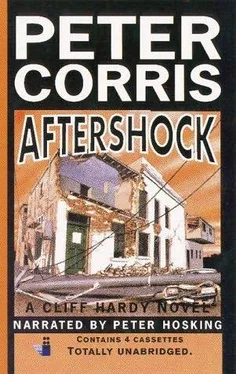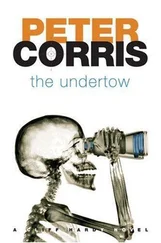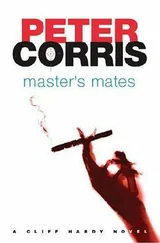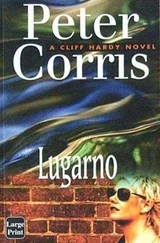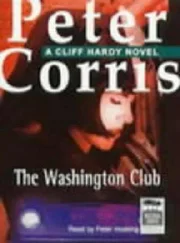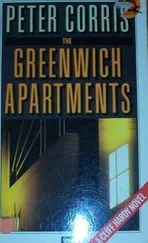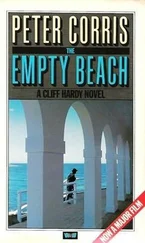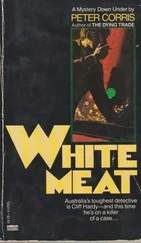Peter Corris - Aftershock
Здесь есть возможность читать онлайн «Peter Corris - Aftershock» весь текст электронной книги совершенно бесплатно (целиком полную версию без сокращений). В некоторых случаях можно слушать аудио, скачать через торрент в формате fb2 и присутствует краткое содержание. Жанр: Криминальный детектив, на английском языке. Описание произведения, (предисловие) а так же отзывы посетителей доступны на портале библиотеки ЛибКат.
- Название:Aftershock
- Автор:
- Жанр:
- Год:неизвестен
- ISBN:нет данных
- Рейтинг книги:4 / 5. Голосов: 1
-
Избранное:Добавить в избранное
- Отзывы:
-
Ваша оценка:
- 80
- 1
- 2
- 3
- 4
- 5
Aftershock: краткое содержание, описание и аннотация
Предлагаем к чтению аннотацию, описание, краткое содержание или предисловие (зависит от того, что написал сам автор книги «Aftershock»). Если вы не нашли необходимую информацию о книге — напишите в комментариях, мы постараемся отыскать её.
Aftershock — читать онлайн бесплатно полную книгу (весь текст) целиком
Ниже представлен текст книги, разбитый по страницам. Система сохранения места последней прочитанной страницы, позволяет с удобством читать онлайн бесплатно книгу «Aftershock», без необходимости каждый раз заново искать на чём Вы остановились. Поставьте закладку, и сможете в любой момент перейти на страницу, на которой закончили чтение.
Интервал:
Закладка:
‘Don’t worry. Nothing like that. What about the small key? Ever see that before?’
Interest in something else than his own misery made him look less limited. He touched the small barrel key. ‘Don’t think so. But there’s a sort of box in the van, like a trunk. It’s locked. That’s the sort of key that might fit it.’
I stood with only a slight creaking of bones. ‘Let’s take a look.’
I followed him out the back door and down some steps to a treeless yard that was half dirt and half grass. Nice things look nicer by moonlight, bad things look worse. This yard was a museum of things half-done or completed things half-decayed. The fences sagged, the grass was cut in spots and long and bushy in others; there had been an attempt to collect cardboard boxes, bottles and cans into one area but either animals had re-distributed them or the steam had gone out of the attempt.
‘Looked better when Mum was alive,’ Roper muttered as he led the way towards the garage. ‘I haven’t got much of a knack for house-keeping. She always did everything.’
He opened the garage door, which sagged on its hinges, and turned on the light. An old red Bedford van stood on the oil and grease blackened cement floor. The garage was dark out of the immediate circle of the light but I got an impression of a tool bench, boxes, oil drums, bits and pieces. The place smelled of rust and neglect. No doubt it had looked better when Dad was alive. No fancy sliding side doors on the Bedford. Roper opened the swing-out back doors and climbed inside. He swore as he knocked his shin against something, then there was a scraping of metal on metal. He pushed a box about the size of an esky towards me. I got hold of it and lifted it clear, not hard because it only weighed about as much as a brick.
‘You can put it on the bench,’ Roper said, pointing, ‘there’s another light over there that Dad worked by’
‘Doing what?’
‘I dunno. He just worked out here all the time.’
He switched on a bare bulb mounted on the wall above the bench. The Ropers hadn’t gone in much for wattage. The box was metal, painted grey. In the dim light I couldn’t see the keyhole. Youth has its uses-Roper turned the box and stuck a black-rimmed fingernail in the hole. I produced the key, put it in the lock and it turned smoothly.
‘Always wondered what was in it,’ Roper said as I lifted the lid.
‘It’s a credit to your honesty that you didn’t take a jemmy to it.’
‘Never thought of it, even.’ The first thing I felt in the box made me drop the lid and lock it.
‘Hey,’ Roper said. ‘I wanna see.’
‘Forget it. I’m taking this with me.’
‘You can’t do that. It’s… I’m the… ‘
‘You’re not anything,’ I said. ‘Mr Jacobs is the de facto executor of Mr Bach’s estate. I’m acting as his agent. I’m taking the box.’
He shrugged. His moods seemed to range all the way from despair to apathy Mum and Dad had done a great job. I carried the box straight up to the street and put it in my car. Roper followed me, slouching, hands in pockets. He’d left his cigarettes in the house and I could tell he was twitching for one. I remembered the feeling. The sight of the smashed window seemed to put some life into him. ‘What about me?’ he said. ‘You can’t just go off.’
‘You haven’t done anything, have you?’
‘No,’ he groaned, ‘that’s the trouble.’
I got into the car and started the engine. He trotted around to stand by the window. ‘I don’t think you’ve got anything to worry about. If I have to make any use of what you’ve told me I’ll make sure you’re protected. Just carry on as normal.’
‘Thanks a lot.’
My patience with him gave out. ‘Stop feeling sorry for yourself,’ I snapped. ‘Clean your house and yourself up a bit and go out and find a new girlfriend. Thanks for the beer.’
I revved up and drove off leaving him standing under a street light looking like a shoeless orphan. Hardy’s therapy. Strong medicine. Good for what ails you. If you’re always bigger than your problems. Not for the first time, I tried, automatically, to wind up the window before I remembered why it wouldn’t wind. The night air was cool on my face, a little too cool. I felt in need of tender loving care and where was there to look for it? Those thoughts were too confusing. I fiddled with the winding knob as I drove and wondered if I could charge Horrie Jacobs for the damage. That’s better, Cliff, I thought, now you ‘re thinking like a professional. I stopped at a liquor barn on the way back to the hotel and bought a half bottle of Haig-one good professional thought deserves another.
What I’d found in Oscar Bach’s locked box was a knife and it’s a funny thing about knives-you can tell from the feel of them whether they’ve been used to chop up vegetables or clean fish or do something else. This is my gypsy grandmother in me talking, of course, but there’s something in it. Back at the motel I poured myself a scotch and unlocked the box again.
By the time I’d laid everything out on the bed I was feeling sick. I’d had two solid scotches on an empty stomach, but that wasn’t the reason. The box had held the knife, a ballpoint hammer, some light rope, a pair of handcuffs, a clump of wadded tissues and an old leather razor strop. Inside a manilla envelope was a collection of newspaper clippings. These had been cut from several different papers; they were cropped and large sections of the reports had been blacked out with an oil pencil. What remained detailed the case of Werner Schmidt, thirty-seven, who’d been convicted of the abduction, sexual assault and malicious wounding of Greta Coleman, sixteen, of Heathcote. He’d picked up the girl on the Audley road, driven into the bush, threatened her with the knife, raped her and hit her twice on the head with a hammer. The prosecution alleged that only the arrival of a National Park ranger, who’d been surprised to see a car on the little-used fire trail, had saved Greta’s life. As it was, she was permanently brain-damaged. The ranger had over-powered Schmidt and taken him to the police.
Schmidt had been sentenced to fifteen years imprisonment. Official documents, also in the envelope, showed that he’d served twelve years of the sentence, mostly at Parramatta. He’d been released four years ago, after opting to serve his full sentence, less remissions, rather than apply for parole. One of the cuttings carried a photo of Schmidt being escorted to court: round face, thin hair, burly build, could have been anyone.
The documentation was pretty worrying. But what really worried me was the knife, hammer and rope, the story about the rape of Gina Costi and a map with four crosses marked on it.
12
The map had been torn from a copy of 200 Kilometres Around Sydney and the crosses were at Mittagong, Wentworth Falls, Richmond and Taree. I fingered the paper, trying to decide whether it was from a new edition of the guide book or an old. New, probably. The big question was whether the crosses represented actual victims, intended victims or something else? I eyed the scotch bottle, wanting another drink but knowing that, with nothing in my stomach, it’d set me on my ear. The answer wasn’t in the bottle anyway. I put the stuff away, then locked the box and put it in the boot of the Falcon which I also locked. I put the distributor cap in my pocket and walked out of the motel courtyard towards a service station advertising just what I needed-’EATS’.
Over a greasy hamburger with chips and something pale green and pink they called a salad, I tried to work my way through the moral and professional thicket. If Bach/Schmidt, call him Bach, had still been alive, my duty would have been obvious-go straight to the cops because people are in danger. But Bach was dead and what I had was no more than evidence leading to the possible solution of possible crimes. Pretty thin. But there was more. If young women had been attacked or killed in those places, their families had a right to the information. I knew from experience that it’s the silence, the never-knowing that eats the lives out of the parents and friends of missing kids. But if there had been no such crimes then the information I had was, strictly speaking, something that had been purchased by Horrie Jacobs. And it was the last thing he’d want to hear about his late friend.
Читать дальшеИнтервал:
Закладка:
Похожие книги на «Aftershock»
Представляем Вашему вниманию похожие книги на «Aftershock» списком для выбора. Мы отобрали схожую по названию и смыслу литературу в надежде предоставить читателям больше вариантов отыскать новые, интересные, ещё непрочитанные произведения.
Обсуждение, отзывы о книге «Aftershock» и просто собственные мнения читателей. Оставьте ваши комментарии, напишите, что Вы думаете о произведении, его смысле или главных героях. Укажите что конкретно понравилось, а что нет, и почему Вы так считаете.
